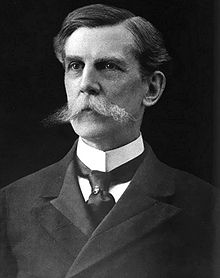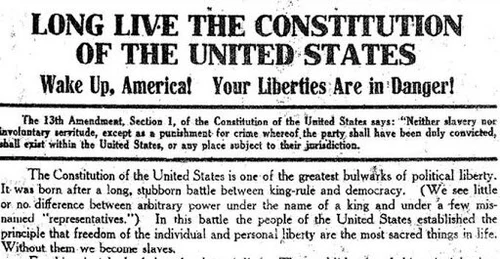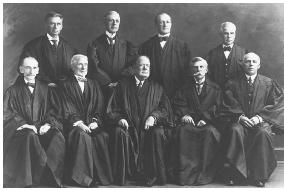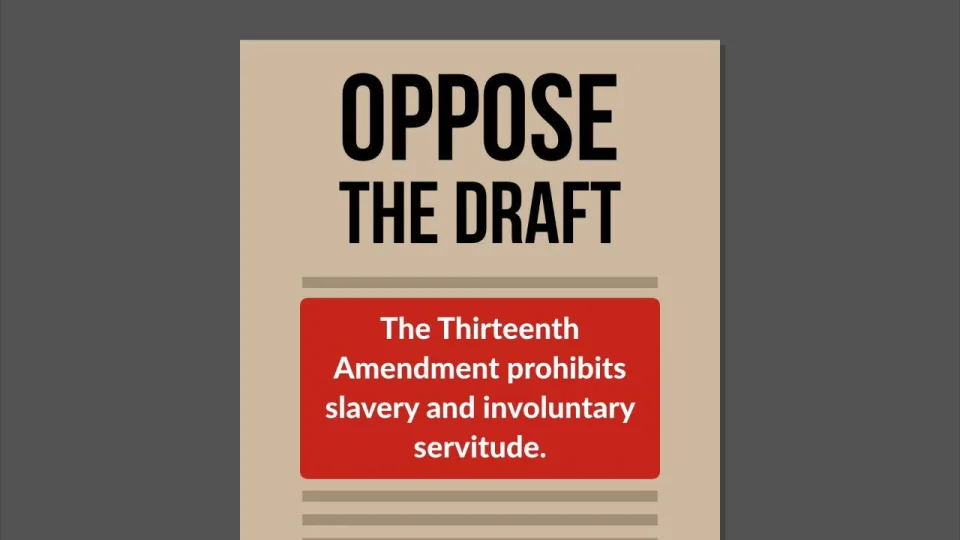Schenck pointed to the 13th Amendment as his main support. During World War I th.
 Schenck V United States Wikipedia
Schenck V United States Wikipedia
Arguments for the United States 1 In a time of war it may limit the expression of opinions if necessary to make sure the military and government can function 2 Schenck and Baer possessed a clear intent to persuade others to not enlist.

Schenck vs the united states. United States legal case in which the US. This decision shows how the Supreme Courts interpretation of the First Amendment sometimes sacrifices individual freedoms in order to preserve social order. When Schenck sent out those flyers to the members of th draft he was charged with violating this act.
In response Schenck was indicted for violating the Espionage Act the Act which made it a crime to interfere with military success or promote the success of its enemies during wartime. In the landmark Schenck v. The leaflets urged the public to disobey the draft but advised only peaceful action.
Schenck believed he was exercising his right to free speech by encouraging people. 9 and 10 1919. Decided March 3 1919.
This Amendment outlawed slavery and forced service. The United States took place from January 9th 1919 to January 10th. Argued January 9 10 1919.
It was passed with the goals of prohibiting interference with military operations or. United States 249 US. 47 1919 the Supreme Court affirmed the conviction of Charles Schenck and Elizabeth Baer for violating the Espionage Act of 1917 through actions that obstructed the recruiting or enlistment service during World War I.
Supreme Court ruled on March 3 1919 that the freedom of speech protection afforded in the US. United States 1919 that speech creating a clear and present danger is not protected under the First Amendment. Schenck mailed out circulars criticizing draft supporters and informing draftees of their rights to oppose.
Shortly after the United States entered into World War I Congress passed the Espionage Act of 1917. The Court ruled in Schenck v. The case began as many do with an act of Congress.
United States 232 US. Had sparked slave-like laws. Constitution s First Amendment could be restricted if the words spoken or printed represented to society a clear and present danger.
Schenck was the general secretary of Philadelphias socialist party. Schenck a prominent member of the Socialist Party was arrested for mailing out 15000 flyers encouraging draft-age men to sign petitions and actively engage against the military draft by raising their voices to Congress and the president. Schenck was charged with conspiracy to violate the Espionage Act of 1917 by attempting to cause insubordination in the military and to obstruct recruitment.
In a case that would define the limits of the First Amendments right to free speech the Supreme Court decided the early 20 th-century case of Schenck v. The search warrant did not issue against the defendant but against the Socialist headquarters at 1326 Arch Street and it would seem that the documents technically were not even in the defendants possession. Learn the basics about the must-know US History Supreme Court Case chal.
The United States This had a huge significance at the time. Schenck and Baer were convicted of violating this law and. This meant that he was in charge of the ordering and payment of postal decisions and document production.
United States 249 US. United States was a Supreme Court Case that explained some limits to the Freedom of Speech afforded by the First Amendment. Soon after the United States entered the war Charles T.
It seriously lessened the strength of the First Amendment during times of war by removing its protections of the freedom of speech when that speech could incite a criminal action like dodging the draft. The United States The United States had just established the Espionage Act which stated that it is a crime for any person to convey information intended to interfere with the armed forces. 47 1919 Schenck v.
Schenck who was found guilty in the original trial appealed the charges by claiming the US. Decided March 3 1919. The case of Schenck v.
Case summary for Schenck v. Significance of Schenck v. During World War I socialists Charles Schenck and Elizabeth Baer distributed leaflets declaring that the draft violated the Thirteenth Amendment prohibition against involuntary servitude.
ERROR TO THE DISTRICT COURT OF THE UNITED STATES FOR THE EASTERN DISTRICT OF PENNSYLVANIA Syllabus. New York 192 US. The Clear and Present Danger rule lasted until 1969.
The Supreme Court gives it 1919 answer. Do you have an absolute right to free speech.
 Schenck V United States V States Twitter
Schenck V United States V States Twitter
 Schenck Vs United States Legal Definition Of Schenck Vs United States
Schenck Vs United States Legal Definition Of Schenck Vs United States
 Schenck V United States Restrictions On Free Speech Landmark Supreme Court Cases By Karen Alonso 1999 05 01 Karen Alonso Amazon Com Books
Schenck V United States Restrictions On Free Speech Landmark Supreme Court Cases By Karen Alonso 1999 05 01 Karen Alonso Amazon Com Books
 An Introduction To Constitutional Law Schenck V United States
An Introduction To Constitutional Law Schenck V United States
 The Supreme Court Capitalism And Conflict Landmark Cases Schenck V U S 1919 Pbs
The Supreme Court Capitalism And Conflict Landmark Cases Schenck V U S 1919 Pbs
 Clear And Present Danger Schenck V United States First Amendment Cases Susan Dudley Gold 9781627123877 Amazon Com Books
Clear And Present Danger Schenck V United States First Amendment Cases Susan Dudley Gold 9781627123877 Amazon Com Books
 Schenck V United States 249 U S 47 1919 Case Brief Summary Quimbee
Schenck V United States 249 U S 47 1919 Case Brief Summary Quimbee
-
Chapter Two CLASSIFICATION OF PENALTIES Art. The Debate Over Death Penalty. Death Penalties Around The World Three widely used execution ...
-
MacArthur arrived at his post a World War II hero having successfully led multiple troops through the war. Douglas MacArthur Is One of Ameri...
-
10 Reasons Not To Become An Archaeologist (and Why. . 5. Being Sent Indoors. Promotion comes slowly to archaeologists, and when it doe...
disadvantages of being an archaeologist
10 Reasons Not To Become An Archaeologist (and Why. . 5. Being Sent Indoors. Promotion comes slowly to archaeologists, and when it doe...

ads

